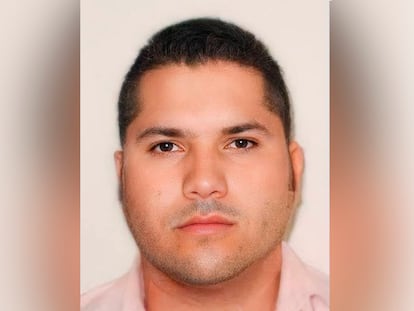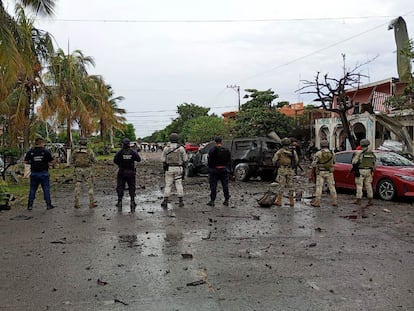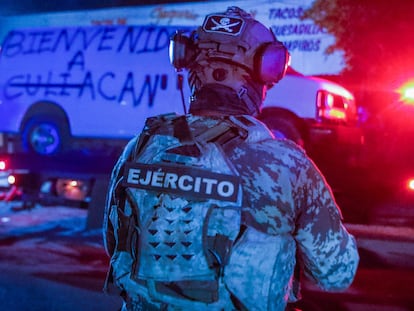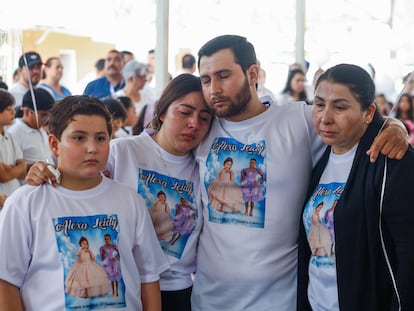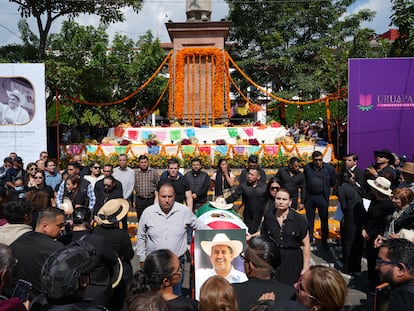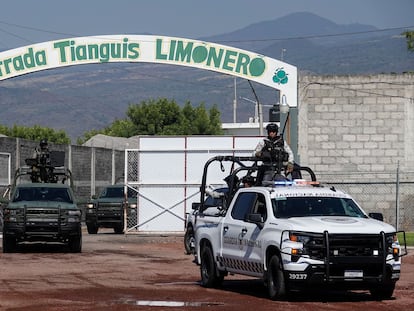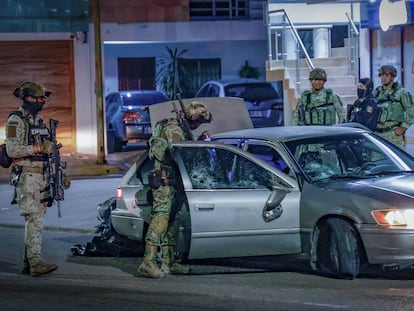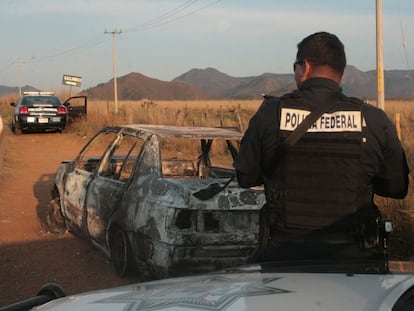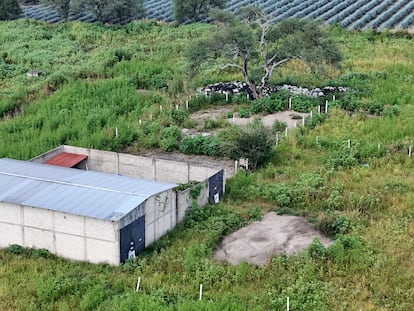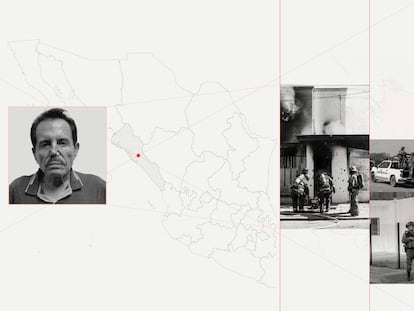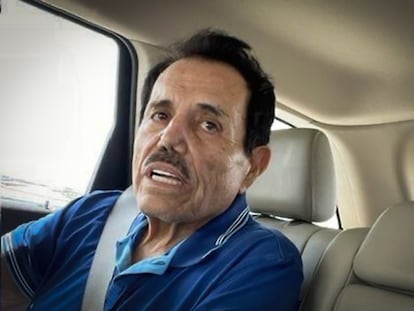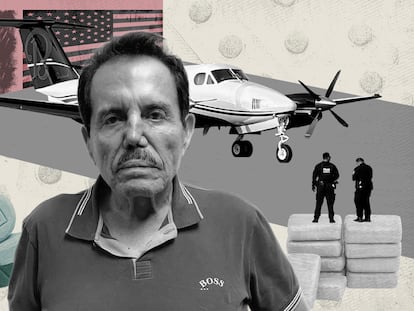Harfuch points to a criminal misunderstanding as the cause of the workers’ abduction. The bodies of at least five have been found in a mass grave, with another five yet to be identified
In Huitzo, Oaxaca, two experts explore the intricacies of the Tomb of the Owl, one of the most important discoveries in Mexican archaeology of the last decade
The vast lemon industry of the Tierra Caliente region of Michoacán, where the alleged extortionist had his fiefdom, puts any preconceived notions about violence and power to shame
The former Canadian athlete, accused of drug trafficking and murder north of the Rio Grande, has surrendered to US authorities
A top government target whose currency was violence, César Sepúlveda had become a key supplier and intermediary for much of the productive activity in Tierra Caliente
The transfer to the US of 37 prisoners, including leaders of the Sinaloa, Jalisco New Generation and Northeast cartels, is a response to threats made by the Republican in recent weeks regarding operations south of the Rio Grande
In his new book, the academic explores the recent history of weapons production in the country and the trafficking of guns to Mexico
Mexican authorities point to the growing influence of Fausto Isidro, once a mid-level regional crime boss, in drug trafficking to the United States
The arrest of Maduro for alleged drug trafficking contrasts with the pardon of former Honduran president Juan Orlando Hernández, convicted of the same crime
The Treasury Department notes that the boss of the Santa Rosa de Lima Cartel manages the group’s operations from prison and even forged an alliance with the Gulf Cartel while behind bars
The arrest of an operative of the powerful CATEM labor union with links to the Sinaloa Cartel increases the pressure on the government in its challenge to curb the cartels
The confrontation between the Jalisco New Generation Cartel and self-defense groups for control of the territory has intensified and shows the difficulties in rebuilding the social fabric in Michoacán
As drug production and trafficking increase across the continent, criminal groups of all sizes are diversifying their operations and increasing their firepower. Governments, meanwhile, stumble between hard-line policies and paralysis
Conversations between the leaders of the criminal network, accused of arms trafficking, fuel theft, and other crimes, reveal chains of corruption used to obtain weapons and permits, which their companies then rented or sold
EL PAÍS has obtained details of the investigation into an apparent mix-up by uniformed officers, an investigation that is progressing through the courts beset by numerous contradictions
A hitman linked to the CJNG shot dead the mayor of Uruapan, who had arrested the group’s leader in August
The murders of the Uruapan mayor and the leader of the lemon growers’ guild in Michoacán reveal a paradigm shift in organized crime, where complex extortion schemes have taken over entire regions
Nearly 50 murders have been recorded in Sinaloa in the last week, mainly in the capital, the main front of a war between cartel factions that has lasted more than a year
Complaints from family members and documents in possession of EL PAÍS confirm that officers from the State of Mexico Attorney General’s Office arrested and beat the men on several occasions. They remain in prison for an alleged crime unrelated to the musicians’ death
García Harfuch relies on leaders trained and seasoned in the now-defunct force to shape part of the president’s shift, sidelining the Armed Forces with seemingly good results
The testimonies of 38 people forcibly recruited in January by the Jalisco New Generation Cartel depict the deceptions and threats employed by the criminal organization
EL PAÍS reports from the northwest region of Mexico, documenting a bloody cartel conflict that has claimed thousands of lives and shaken the community
‘El Mayo’ Zambada, ‘El Chapo’ Guzmán, and Caro Quintero — the three kings of Mexico’s drug empire — will spend their final days in the prisons in the United States
Omar Reyes’ posting to the Financial Intelligence Unit strengthens the arsenal of tools available to Claudia Sheinbaum’s security czar
The accused drug trafficker, arrested under unusual circumstances in July 2024, is taking the same path as Ovidio Guzmán
The arrest of the drug lord marks its first anniversary, while the Mexican State bleeds due to the fight initiated by his henchmen against the sons of his former partner, Joaquín ‘El Chapo’ Guzmán








